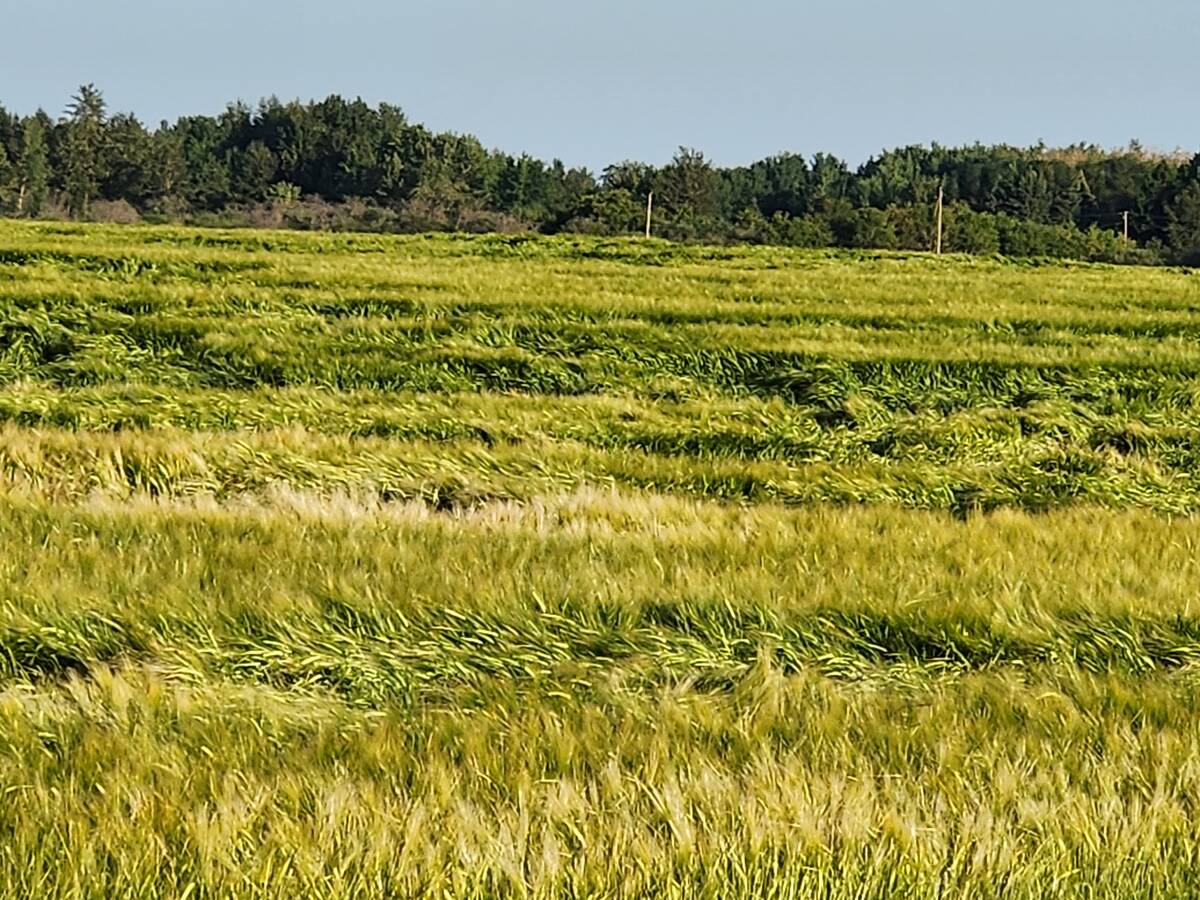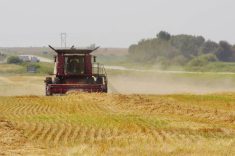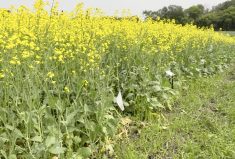In “Delaying the drainage” (editorial, Feb. 3) you referred to the Red River Basin report about storing water upstream, with an estimated 885,000 acres of one foot of storage being adequate to reduce peak levels.
This probably wouldn’t take up 885,000 acres because some storage would be more than one foot deep, but nonetheless it would be taking a lot of valuable land out of production.
Tile drainage is an alternative that should be researched. The theory is that tile drainage will constantly drain water from the soil throughout the year. This frees up space for the land to absorb water during high-moisture events. You will not have more total drainage but you will reduce the peaks.
Read Also

Cereal lodging isn’t just a nitrogen problem
Lack of copper in the soil can also lead wheat and other cereal crops to lodge during wet seasons on the Canadian Prairies.
Our clay soils in the valley could easily hold a couple of inches of water. The government could cost share with the farmers about 50 per cent. I would tile all my land at $400 per acre, so for $1 billion you could tile 2.5 million acres. If this land holds four more inches in the spring, which I think is low for Red River clay, you would reduce peak flow by 833,333 acre feet.
Tiling wouldn’t take land out of production, but would enhance production. It also helps nutrients like phosphorus to remain in the soil rather than being washed away in surface run-off. Farmers could grow more high-value crops like corn and canola as well. You would have millions more in tax revenue rather than reducing it. Plus Manitoba crop insurance would pay out millions less during disaster years like this one. This strategy would protect against flooding plus boost the economy. So it’s worth looking into.
Andrew Reimer Blumenort, Man. forced by legislation to sell their wheat, durum and barley for human consumption through the CWB. To do otherwise, would be breaking the law. Just because the CWB legislation was relevant 65 years ago during the Great Depression, does not mean that it is today.
A private member’s bill, Bill C-619, has recently been introduced and if passed, western Canadian grain farmers would have the option of opting out of the CWB.
To allow for predictability, any producer choosing to be exempted from the pool must do so for a minimum of two full crop years. This approach allows for the CWB to remain an option for producers who wish to continue to market through the board.
In addition to many Conservative members of Parliament being farmers, our government knows that the agriculture industry is the backbone of our economy. My Conservative colleagues and I hold round table meetings with farmers from across the country on a regular basis to get their input on agriculture policies. Just ask the farmers and producers of Dauphin who hosted me recently at a meeting.
Our government will continue to put farmers first in every decision we make about agriculture.
Gerry Ritz Minister of Agriculture
He states that it is a “reckless spending of farmers’ money.”
Gerry doesn’t seem to get it. Democratically elected directors are put in place by farmers to represent their best interests. A solid “business case” was put forward and the directors on behalf of grain growers decided to make the purchase.
This reaction from Ritz is typical of the Harper group. If they can’t exercise complete control they are not happy. Given the level of interference with the (CWB) by the Harperites in the past, less government control, not more is what farmers expect.
So Gerry put on your cowboy boots and stand up tall for Canadian grain farmers. Work for them, not against them. Duncan Geisler
Ashern, Man.
Please forward letters to Manitoba Co-operator, 1666 Dublin Ave., Winnipeg, R3H 0H1 or Fax: 204-954-1422 or email: [email protected] (subject: To the editor)














